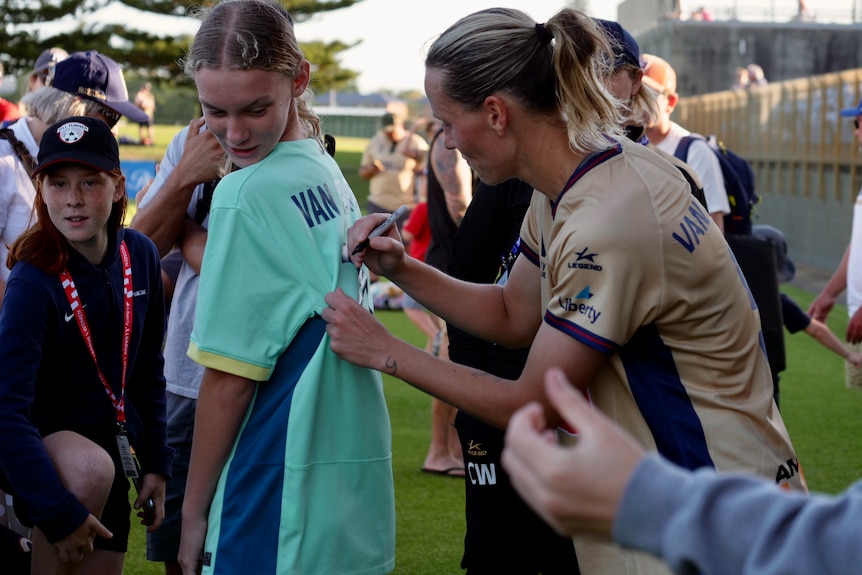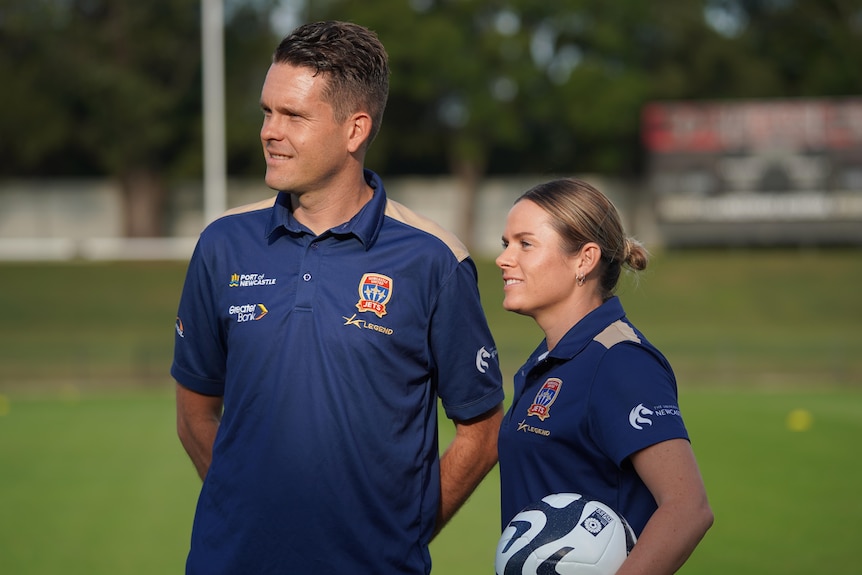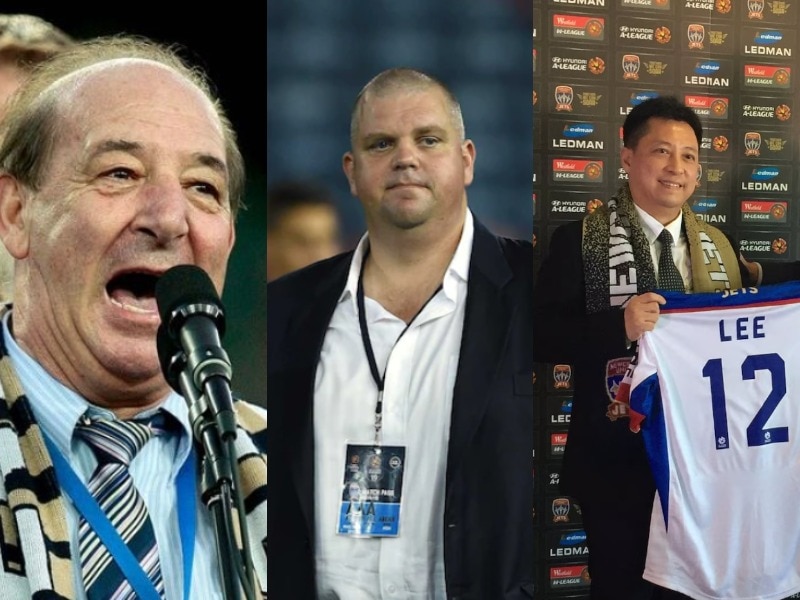Newcastle Jets captain Cass Davis knows a lot about records, but even more about pressure.
With more than 150 caps under her belt, she is the most capped player in the club’s women’s team and will guide the Jets into today’s semi-final against Melbourne City in Maitland.
“I’m really excited [to see] how far football has come since I started here back in 2013,” Davis says.
“If you look back at the crowd numbers, and now you look at what we’re getting this season.
“There have been a lot of struggles throughout those times, and sometimes you have so many struggles that mentally you have to think, ‘when is the next step?'”
The “up” has come in the form of one of the most important games in the club’s history.
The Jets are for sale for the fourth time since they took off in 2000, but are struggling to find a buyer, threatening the survival of their men’s, women’s and development sectors.
The club’s license was canceled under former owner Martin Lee for unpaid debts in 2021, which was the third time the finances almost spelled the end.
A consortium of other A-League clubs stepped in to temporarily fund the Jets in 2021, in order to maintain a core A-League team.
But that deal is about to expire and the clock is ticking for the Jets.
Executives have emphasized to fans that there are several interested parties and that they are intensely negotiating potential deals.
But the prospect of a foundation A-League football club disappearing as the league enjoys growing attendance following the Matildas’ World Cup campaign is a worrying prospect for football in Australia’s largest regional city.

Hunter Football Fever
Statistics from Northern NSW Football, which regulates club football from Newcastle to the Queensland border, show there has been a 14 per cent increase in registrations for all genders in the Hunter region this year.
Within that, there has been a 23 percent increase in registrations from players who identify as women.
That boost is undoubtedly due to the Matildas’ World Cup run, which inspired countless girls to follow in the footsteps of players like Emily Van Egmond and Clare Wheeler, who started out with the Jets.
“Newcastle is a fantastic football market,” a spokesperson for the Australian professional leagues told the ABC in a statement last month when asked about the status of the Jets sale.
“They are a foundation club with a storied history and have an excellent and very loyal fan base.
“We hope there can be a resolution [for the ownership] In the next weeks.”
But those weeks have passed and Jets fans can’t help but wonder if a savior will arrive to keep the presence of professional soccer, particularly for women, alive in the region.

Jets interim women’s coach Ryan Campbell said his team knew what it showed on the field could sway a buyer.
“The girls really understand that they are important in ensuring that people who are looking to buy the club, or who are considering buying it, recognize that it is viable,” she said.
“There is definitely a future not only in what girls do, but also in what men do.
“For us it’s just about being catalysts to try to help the sales process happen.”

proving a point
Today’s players don’t know if they will wear a gold kit next season, but that hasn’t distracted them from the real task at hand.
This is the furthest Newcastle have progressed in a women’s A-League finals.
“Every time I get interviewed about different things or milestones, I always come back to saying I want a trophy,” Davis said.
“I think this is a perfect year to do it.”
Arguably more important than a title is what the team has to prove: that it can draw a crowd and that the club is crucial for women’s sport in the region.
Receive our local newsletter, delivered free every Wednesday

